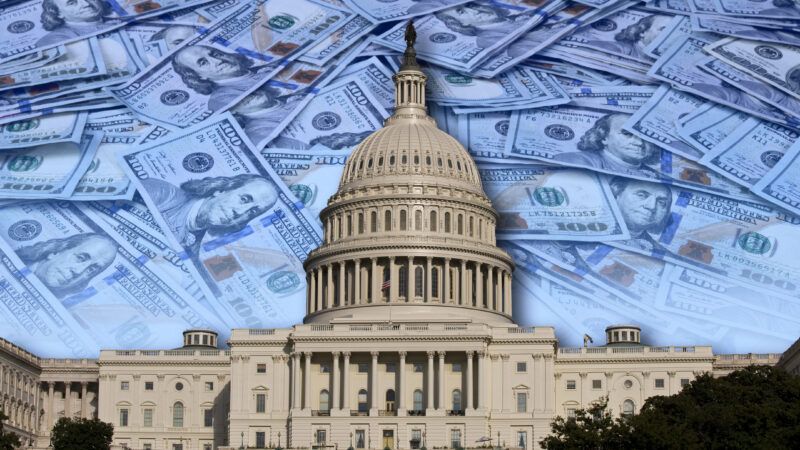Don't Let the Government-Shutdown Charade Distract You From the Debt Crisis
America’s biggest fiscal challenge lies in the unchecked growth of federal health care and old-age entitlement programs.

With the Senate and now the House reopening for business, Congress is resuming its negotiations over annual spending on so-called discretionary programs. As Washington tinkers around the edges of the behemoth federal budget, members are steering clear of the biggest budget items—the ones sending U.S. debt to unprecedented heights.
Discretionary means that Congress hasn't put these programs on autopilot, unlike so-called mandatory programs. Instead, Congress must vote each year (and sometimes more often) to either continue, or alter the spending. Otherwise, discretionary program funding expires on September 30, or whichever date Congress picks as the end date for a continuing resolution (a bill to continue spending at current levels).
While controlling discretionary spending is important for fiscal responsibility, for reducing government waste, and for negotiating the proper size and scope of federal activities, the current shutdown debate is largely symbolic. America's biggest fiscal challenge lies in the unchecked growth of federal health care and old-age entitlement programs. Repeated shutdown fights and a slew of temporary continuing resolutions have gotten us no closer to reforming Social Security and Medicare.
Those paying attention to the debt limit debate that ended in early June may be wondering what all the shutdown fuss is about, given that Congress and the White House agreed to new spending limits just a few months ago. Those limits, specified in the Fiscal Responsibility Act, were a sham from the beginning. Secretive side deals undermined the stated goals of the bipartisan agreement before the ink was dry. Now President Joe Biden has requested $40 billion in additional emergency supplemental spending, with the Senate adding several more billion to its appropriations bills, a glaring attempt to evade even modest fiscal restraints.
The debt limit deal did succeed in allowing both Democrats and Republicans to claim political victory while suspending the debt limit for more than 18 months. The losers are the American people, as excessive federal spending and unchecked entitlement growth drive up inflation and interest rates and undermine stronger economic growth. A more responsible way to raise the U.S. debt limit would have paired such an increase with a credible fiscal plan to stabilize the growth in the debt. Alas: With federal elections looming next year and the White House dug in against entitlement reform, Congress chose to punt instead.
The longer Washington waits to fix autopilot spending, the more damage they'll do. The Congressional Budget Office's latest long-term budget outlook projects that U.S government spending will consume nearly 30 percent of the economy by 2053—almost 40 percent higher than the historical average. Congress is expected to rack up more than $100 trillion in additional deficits over those 30 years—more than four times what the U.S. government has borrowed over its entire history. Who will lend the U.S. government such vast sums?
The main drivers of this increase are heightened interest costs and the growth in health care and Social Security spending. With Medicare and Social Security responsible for 95 percent of long-term unfunded obligations, according to the Treasury Financial Report, there's simply no way any serious fiscal reform effort can leave these programs untouched. Every other part of the budget will either stay steady or decline slightly. Other so-called mandatory programs, including various welfare programs, retirement benefits for federal employees, and some veterans' benefits, are projected to decline as a share of the economy. Discretionary spending depends on what Congress decides to spend each year; if historical trends hold, this part of the budget will decline by one-sixth. And yet this is the part of the budget that all this shutdown fuss is about.
The most likely outcome from the current standoff is a continuing resolution into December, followed by a spending-laden Christmas tree bill before year's end. This shutdown debate matters only so much, considering the huge fiscal challenge confronting the United States.


Show Comments (102)